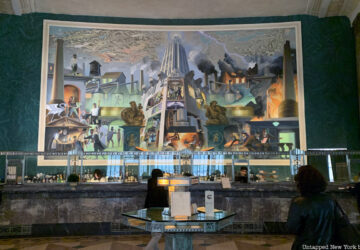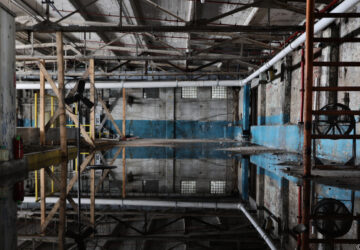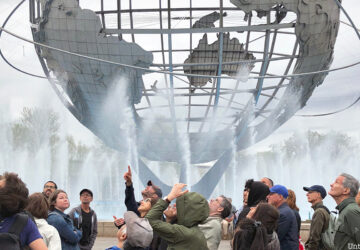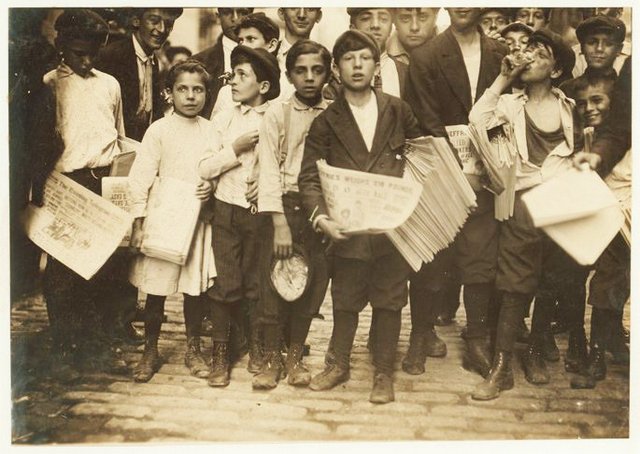While news continues to make its way around the world, it may be hard to imagine today that the publishing industry was at the epicenter of some of the world’s most important architectural feats. But this was the case in late 19th century New York City, when the daily newspaper industry was centered at Park Row, near City Hall. Such institutions included The New York Times, The New York Tribune and The New York World.
As evidence of just how important Newspaper Row was at the time, The New York World Building was the first building in the city to surpass the height of Trinity Church. Furthermore, it was the world’s tallest building from 1890 to 1894. The 309-foot, 16-story building at 99 Park Row was capped by a copper dome and inside Joseph Pulitzer had his office. The semi-circular office had three windows with unobstructed views out to Brooklyn, Governor’s Island, and Long Island, ceiling frescoes and embossed leather lining the walls. Also in the dome was another office for Pulitzer’s brother-in-law, a library and a conference room. Unsurprisingly, The New York World heralded its own building as “The Greatest Newspaper Building in the World.”
George B. Post designed the steel-frame building, with an exterior of sandstone, brick and terra-cotta. The entire thing was paid for in cash. The newspapers were printed in the basement printing press, with retail on the first and mezzanine floors. The news offices were on the top six floors, with commercial office space rented to other tenants below. According to the book Pulitzer: A Life by Denis Brian, Pulitzer furnished bedrooms on the 11th floor for editors and reporters who worked late and couldn’t get home. At the opening celebration, an explosion caused by a photographer’s flash powder caused a big stone to fall from City Hall and broke around fifty windows in city’s political home.






